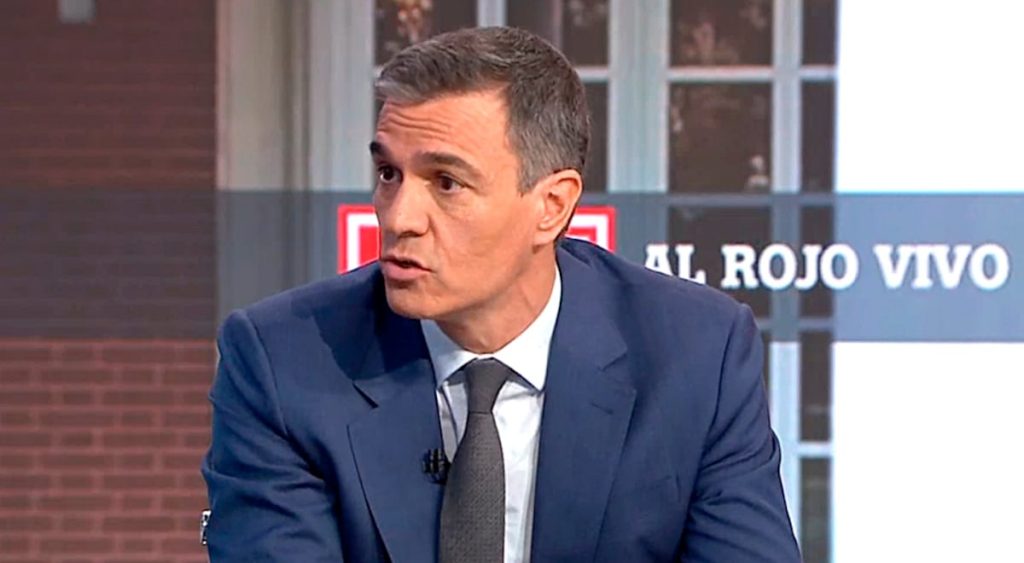Pedro Sánchez, the President of the Government of Spain, is thrilled following the Catalan elections last Sunday. The success of the Partit dels Socialistes de Catalunya (PSC), which won in votes and seats, has come at one of the most critical moments of Sánchez’s five-year term as president, after a period of reflection during which he seriously considered resigning. Three weeks after causing total confusion among his party with that announcement, Sánchez has received an electoral balm and is now not only thinking of reinvigorating the legislature but also contemplating running for another term. He believes that the result of the Catalan elections is an endorsement of his policies – including pardons, a draft amnesty law, and the abolition of the crime of sedition – and is confident that Salvador Illa will be the new president of the Generalitat.
In an interview on the La Sexta program Al Rojo Vivo, the head of government dismissed the idea that the PSC would step aside to allow for a government led by Carles Puigdemont, the candidate of Junts, who also aims to try to be invested as president. Sánchez stated that Puigdemont “has to face reality” and that “the reality is the reality: the numbers do not add up.” This contradicts the scenario that the People’s Party has been warning about, where Sánchez sacrifices Illa’s presidency in Catalonia in exchange for Junts’ support in the Congress of Deputies. Sánchez has declared the Catalan independence process dead, unlike Alberto Núñez Feijóo, the president of the People’s Party, and has mocked what he sees as internal contradictions within the party on this issue.
The president believes that a new era has opened up in Catalonia, which will be focused on the “management” of public services, as long as Illa, a socialist, is in power. He stressed that it is necessary to face problems head-on, and that the focus on independence had dominated Catalan politics in the past decade. Sánchez is convinced that this new situation in Catalonia can be part of his legacy, despite his previous doubts about pardons and amnesty (which he vehemently denied until a few days before granting them). He emphasized the importance of facing challenges head-on and highlighted the political choices that have led to Spain’s growth and increased employment over the past six years.
To secure his investiture, Illa, the socialist candidate, will need the support of ERC. Sánchez has stated that he has not exchanged any messages with the Republicans or Junts in recent hours. He emphasized that the Catalan society would not accept a repeat election, and it is imperative to support a new government, with Illa having the necessary support. Sánchez recalled the five days of reflection he took before deciding not to resign following his announcement to consider stepping down, revealing the personal struggles he and his family have faced. Regarding the allegations of conflicts of interest involving his wife, Begoña Gómez, and public grants, Sánchez strongly defended her actions and dismissed the accusations as baseless.
Sánchez also addressed the issue of combating misinformation, especially regarding the investigations into the Fiscalía General del Estado and prosecution of Alberto González Amador. He expressed confidence in the independence of the judiciary and affirmed the government’s trust in the Public Prosecutor’s Office. The President revealed plans to take action against disinformation after the European elections and emphasized the need to address challenges to democracy faced by various countries. Sánchez also discussed the long-delayed renewal of the General Council of the Judiciary, suggesting that measures would be taken in the coming months. Finally, he revealed plans to recognize Palestine as a state alongside other countries, which will be announced in a statement following his upcoming appearance in the Congress on May 22.














